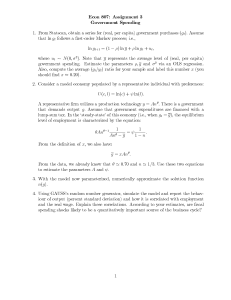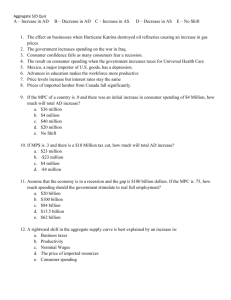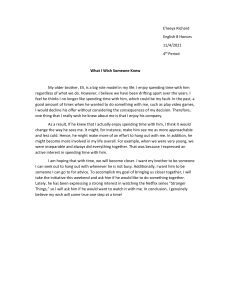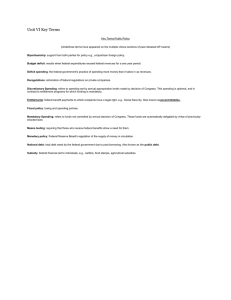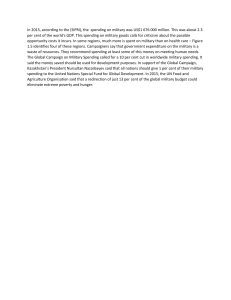COMPARATIVE ASSESSMENT
advertisement
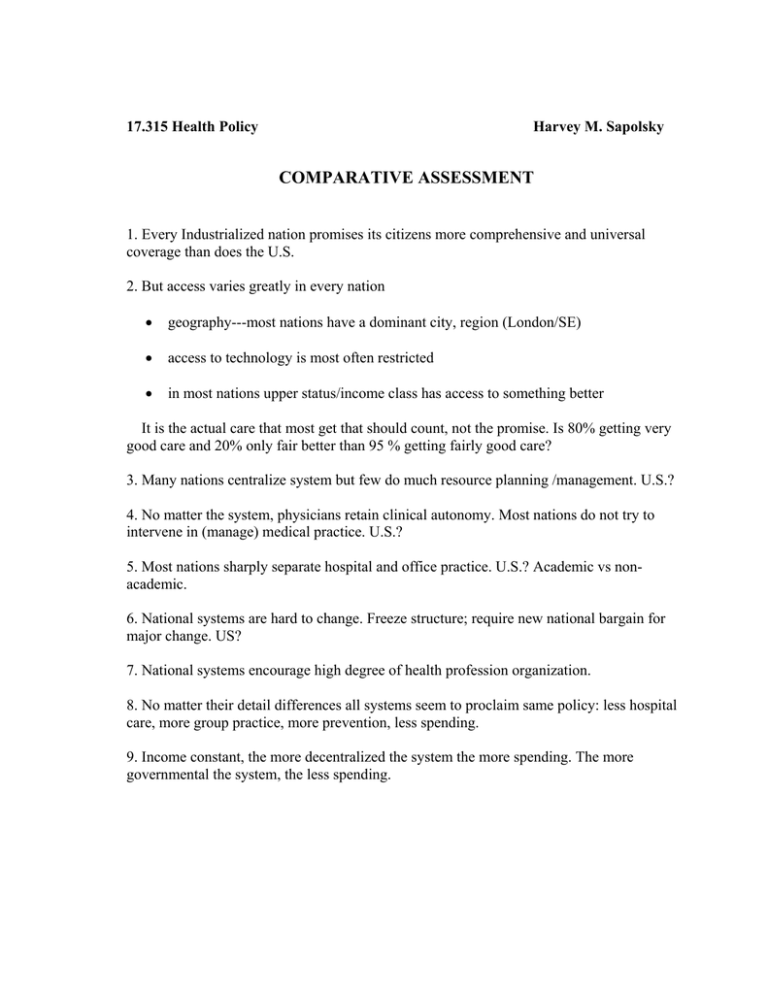
17.315 Health Policy Harvey M. Sapolsky COMPARATIVE ASSESSMENT 1. Every Industrialized nation promises its citizens more comprehensive and universal coverage than does the U.S. 2. But access varies greatly in every nation • geography---most nations have a dominant city, region (London/SE) • access to technology is most often restricted • in most nations upper status/income class has access to something better It is the actual care that most get that should count, not the promise. Is 80% getting very good care and 20% only fair better than 95 % getting fairly good care? 3. Many nations centralize system but few do much resource planning /management. U.S.? 4. No matter the system, physicians retain clinical autonomy. Most nations do not try to intervene in (manage) medical practice. U.S.? 5. Most nations sharply separate hospital and office practice. U.S.? Academic vs nonacademic. 6. National systems are hard to change. Freeze structure; require new national bargain for major change. US? 7. National systems encourage high degree of health profession organization. 8. No matter their detail differences all systems seem to proclaim same policy: less hospital care, more group practice, more prevention, less spending. 9. Income constant, the more decentralized the system the more spending. The more governmental the system, the less spending.

